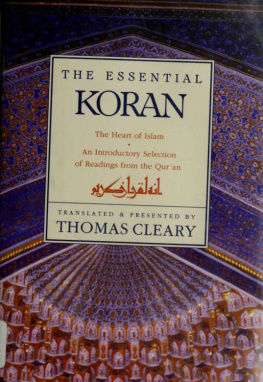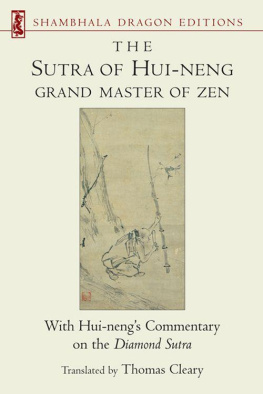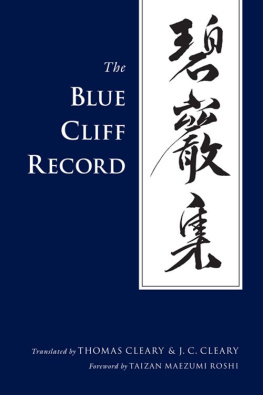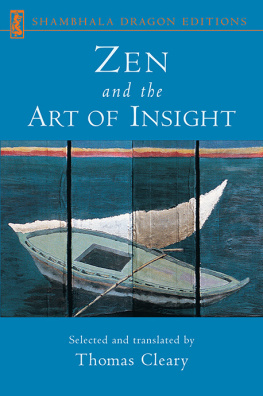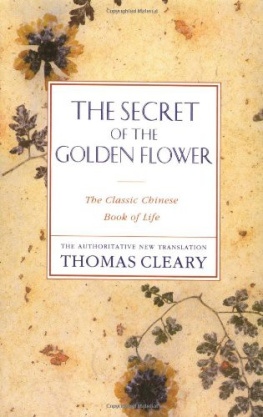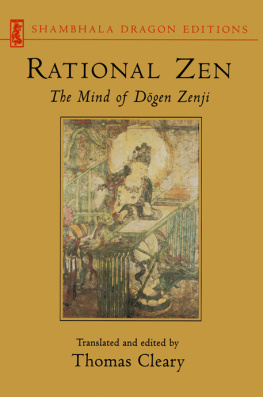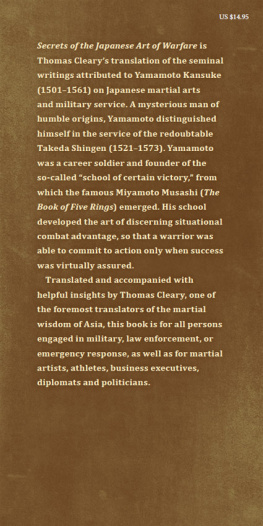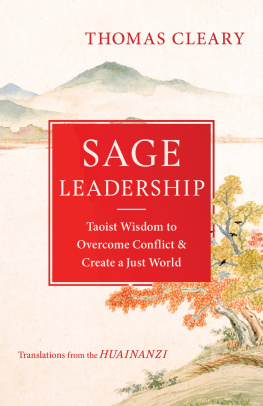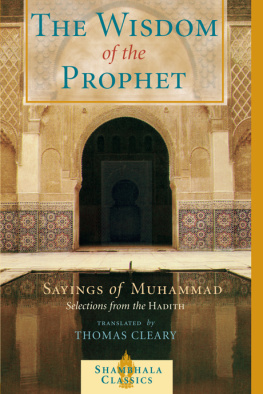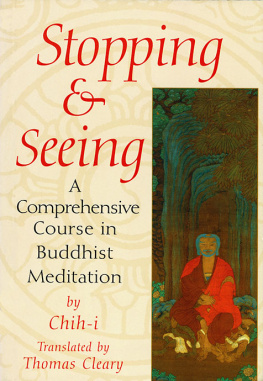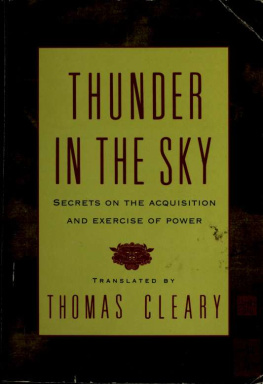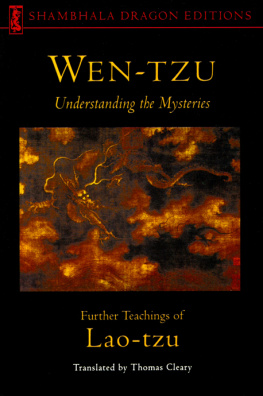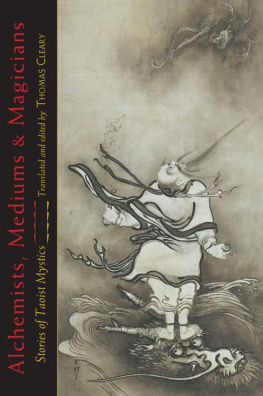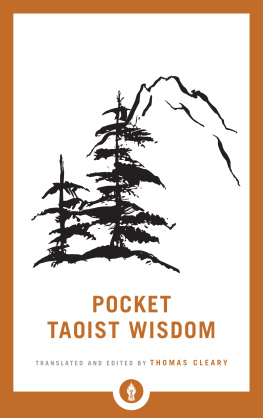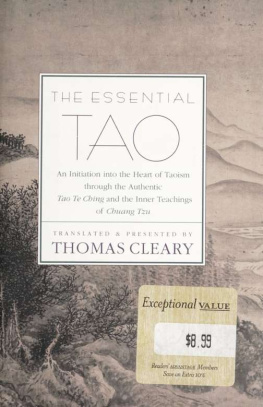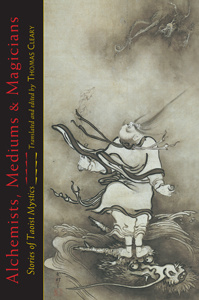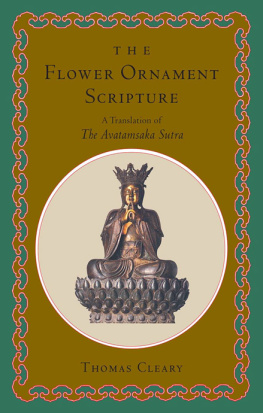Thomas Cleary - The Essential Koran: The Heart of Islam
Here you can read online Thomas Cleary - The Essential Koran: The Heart of Islam full text of the book (entire story) in english for free. Download pdf and epub, get meaning, cover and reviews about this ebook. year: 1994, publisher: HarperOne, genre: Religion. Description of the work, (preface) as well as reviews are available. Best literature library LitArk.com created for fans of good reading and offers a wide selection of genres:
Romance novel
Science fiction
Adventure
Detective
Science
History
Home and family
Prose
Art
Politics
Computer
Non-fiction
Religion
Business
Children
Humor
Choose a favorite category and find really read worthwhile books. Enjoy immersion in the world of imagination, feel the emotions of the characters or learn something new for yourself, make an fascinating discovery.
- Book:The Essential Koran: The Heart of Islam
- Author:
- Publisher:HarperOne
- Genre:
- Year:1994
- Rating:3 / 5
- Favourites:Add to favourites
- Your mark:
- 60
- 1
- 2
- 3
- 4
- 5
The Essential Koran: The Heart of Islam: summary, description and annotation
We offer to read an annotation, description, summary or preface (depends on what the author of the book "The Essential Koran: The Heart of Islam" wrote himself). If you haven't found the necessary information about the book — write in the comments, we will try to find it.
For Muslims the whole of the Quran is
The Essential Koran: The Heart of Islam — read online for free the complete book (whole text) full work
Below is the text of the book, divided by pages. System saving the place of the last page read, allows you to conveniently read the book "The Essential Koran: The Heart of Islam" online for free, without having to search again every time where you left off. Put a bookmark, and you can go to the page where you finished reading at any time.
Font size:
Interval:
Bookmark:









Rather, it invites intelligent faith, growing from observation, reflection, and contemplation, beginning with nature and what is all around us. Accordingly, antagonism between religion and science such as that familiar to Westerners is foreign to Islam. This connection between faith and reason enabled Islamic civilization to absorb and vivify useful knowledge, including that of ancient peoples, whereby it eventually nursed Europe out of the Dark Ages, laying the foundation for the Renaissance. When Europe got on its cultural feet and expelled Islam, however, the European mind was rent by the inability of the Christian church to tolerate the indivisibility of the sacred and the secular that characterized Islam and had enabled Islamic civilization to develop natural science and abstract art as well as philosophy and social science. The result was a painful, ill-fated divorce between science and religion in Europe, one whose consequences have adversely affected the entire world. In the post-Christian West, where thinking people, including scientists themselves once more, are seeking solutions to the difficulties created by the Christian divorce between religion and science, the Qur'an offers a way to explore an attitude that fully embraces the quest for knowledge and understanding that is the essence of science, while at the same time, and indeed for the same reasons, fully embraces the awe, humility, reverence, and conscience without which "humankind does indeed go too far in considering itself to be self-sufficient" (Qur'an 96:6-7).
Even for the secular Westerner, apart from any question of religious belief or faith, there are immediate benefits to be found in reading the Qur'an. First, in view of the sacredness and vital importance of the Qur'an to approximately one-fifth of all humanity, a thinking citizen of the world can hardly develop a rational and mature social consciousness without considering the message of the Qur'an and its meaning for the Muslim community. With the fall of communism, it has become particularly clear that global peace, order, and self-determination of peoples cannot be achieved without intelligent respect for Islam and the inalienable right of Muslims to live their religion. The second immediate benefit in reading the Qur'an, therefore, is that it is a necessary step toward the understanding and tolerance without which world peace is in fact inconceivable. For non-Muslims, one special advantage in reading the Qur'an is that it provides an authentic point of reference from which to examine the biased stereotypes of Islam to which Westerners are habitually exposed. Primary information is essential to distinguish between opinion and fact in a reasonable manner.
This exercise may also enable the thinking individual to understand the inherently defective nature of prejudice itself, and thus be the more generally receptive to all information and knowledge of possible use to humankind. The Qur'an The name Qur'an means the Recital or the Reading. According to its own word, the Qur'an is a revealed Book in the spiritual tradition of the Torah and Gospel transmitted by Moses and Jesus. Connecting itself and these distinguished predecessors to even earlier dispensations of original religion, the Qur'an represents its teaching as confirming and clarifying the truth of what was in those messages. The Qur'an is undeniably unique in this tradition, and indeed unique in the entire context of classical sacred tradition throughout the world, in having been revealed in the full light of history, through the offices of a Prophet who was well known. As the last link in a chain of revelation going back to time immemorial, even to the very origin of humankind, the Qur'an has the special function of recollecting the essential message of all revealed Books and distinguishing this from the opinions and reactions later interpolated into ancient texts whose original dispensation had taken place in remote and even unknown times.
Therefore the Qur'an is not only called the Reading or the Recital but also the Criterion: it is called a Reminder and also a Clarification. A modern descendant of the Prophet Muhammad wrote of this comprehensive scope and function of the Book in these terms: The Qur'an is nothing but the old books refined of human alloy, and contains transcendent truths embodied in all sacred scriptures with complete additions, necessary for the development of all human faculties. It repeats truths given in the Holy Vedas, in the Bible, in the words of the Gita, in the sayings of Buddha and all other prophets, and adds what was not in them, and gives new laws to meet the contingencies of the present time when the different members of God's family who lived apart from each other in the days of old revelations had come close one to the other. 1 Because the Qur'an synthesizes and perfects earlier revelations, its function as a Criterion to distinguish between truth and falsehood is not carried out in the form of dogmatic assertion or condemnation of one religion or another, but in the form of distinction between human artifice and the essential meaning of religion, between hypocrisy and true faith. Thus the same writer explains, "The Qur'an calls itself Hakatn 'judge,' to decide between Christian and Christian, between Hindu and Hindu, between Buddhist and Buddhist, and so it did." 2 The observation that the Qur'an distinguishes the differences within the adherents of each religious dispensation, rather than among the dispensations themselves per se, seems to be a key to approaching the Qur'an without religious bias. The Qur'an could not function in this manner in the context of world religions if it were no more than a collection of dogma or the handbook of a particular new sect or cult.
Font size:
Interval:
Bookmark:
Similar books «The Essential Koran: The Heart of Islam»
Look at similar books to The Essential Koran: The Heart of Islam. We have selected literature similar in name and meaning in the hope of providing readers with more options to find new, interesting, not yet read works.
Discussion, reviews of the book The Essential Koran: The Heart of Islam and just readers' own opinions. Leave your comments, write what you think about the work, its meaning or the main characters. Specify what exactly you liked and what you didn't like, and why you think so.

